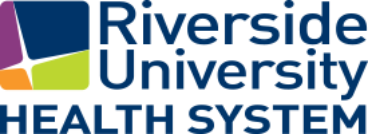OGME 1
PGY-1 Goals
The first year resident rotates on the Orthopaedic Surgery Service at Riverside University Health System (RUHS). In addition, the PGY-1 will rotate through the of Vascular Surgery, Anesthesia, Emergency Service, Surgical Intensive Care Unit, Surgery, Infectious Disease/Rheumatology, and Internal Medicine. The major goal of the PGY 1 year is to develop entry-level skills knowledge and abilities while helping manage the surgical and non-surgical patient. The PG 1 resident is responsible for the day-to-day care of patients on the service to which they are assigned under the direct supervision of senior residents and faculty. These activities will provide experience in the principles of pre- and postoperative care, experience as an assistant and an operating surgeon working under direct supervision.
PGY-1 Resident Should Demonstrate The Ability To
- Establish basic proficiency in the evaluation of patients under routine and emergency circumstances, recognize surgical emergencies, perform a history and physical examination, order appropriate basic ancillary studies, and effectively communicate findings to other physicians.
- Establish basic proficiency in providing pre-operative and post-operative care including write appropriate pre-op and post-op orders for floor patients, handle nursing calls appropriately, and manage most routine postoperative care with minimal intervention by supervisors.
- Develop a working knowledge of common problems in orthopaedics and other non-orthopaedic services. (Achieves acceptable grade on rotation evaluation).
- Establish a working knowledge and familiarity with common procedures of the service they rotating through (achieves acceptable grade on rotation evaluation).
- Acquire basic operative skills necessary to perform less complex orthopaedic procedures.
- Develop personal values and interpersonal skills appropriate for the orthopaedic resident (is available at required times, gives patient care needs highest priority).
- Learn the basics of scientific methodology.
- Develop a working knowledge of the core competencies and complete the assigned curriculum for each area.
- Develop life-long habits of self-assessment, self-directed learning and reflection upon what has been learned to consciously change behaviors and practices that can improve patient care.
- Improve the communication skills with different members of the health care team.
- Develop a working knowledge of the responsibility in complying with the requirements of the Joint Commission in Hospital Accreditation and how this ultimately improves patient care.
- Examine the ethical underpinnings of clinical practice and address the ethics issues faced every day caring for patients.
